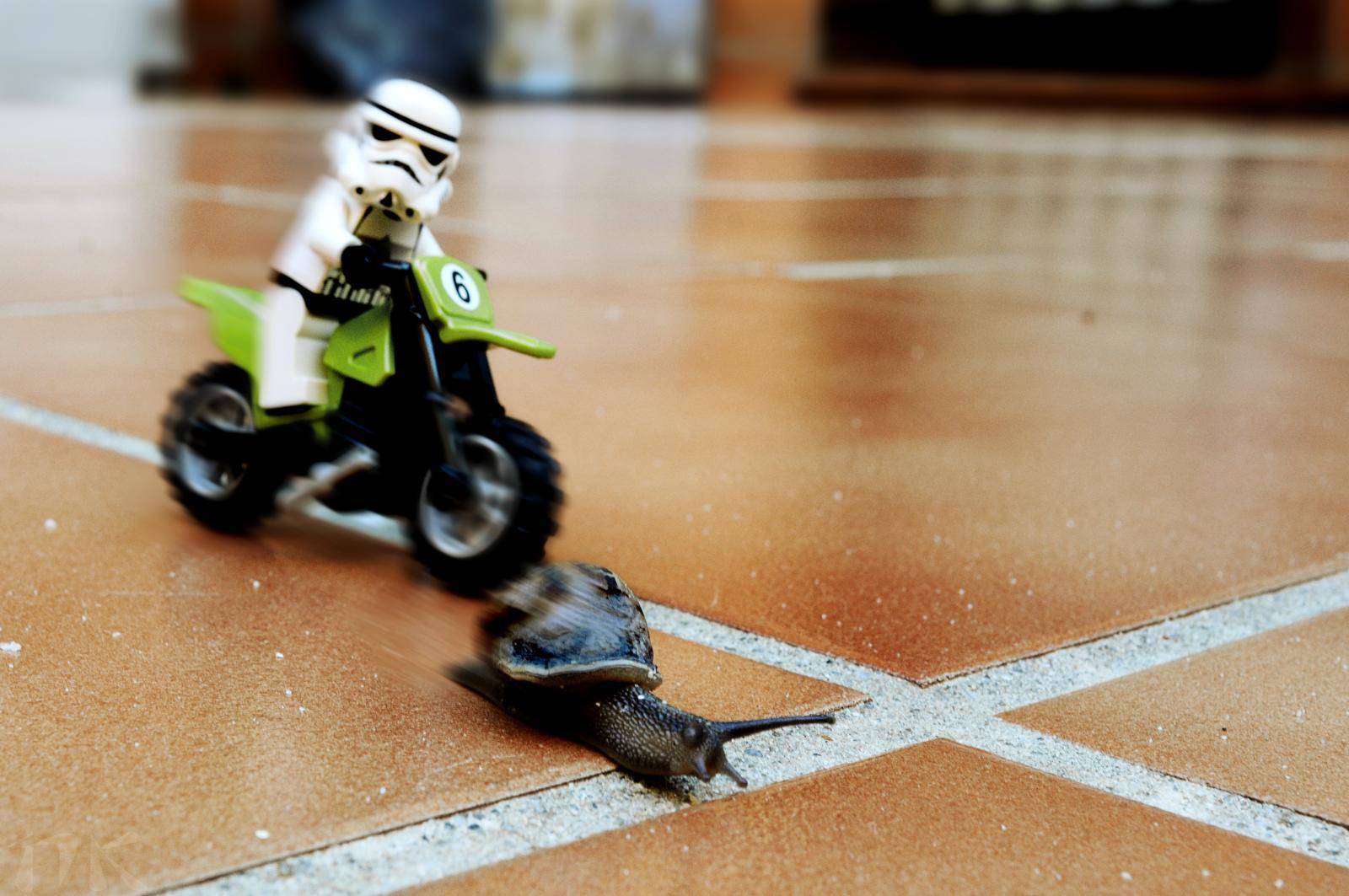Why must everything be fast? Why are we looking for continual shortcuts around being in the moment?
Do things taste better if you take more time to make them?
Speed coffee
Making a pot of coffee is a relatively simple process. You grind beans and pour them in the filter. You put water in the tank and then hit a button. Some minutes later the machine beeps and you pour pure caffeinated goodness out into a receptacle that serves as a staging area for getting coffee to your stomach.
Maybe if it’s just you at home you simply pour that black gold directly into your mouth, and take the burning sensation on the way down as a signal that things are about to get much happier in your brain.
But then your machine breaks and you need to make a pot of coffee with an AeroPress. The steps are basically the same but require more interaction from you. When you pour the water in the AeroPress you must stir it and top it up multiple times. You set a timer so the beans sit for the amount of time you know brews the best coffee, getting proper extraction of that flavour into the water.
You stand there making coffee instead of walking away to get more things done while coffee is made for you. You get to smell the coffee brewing and see the texture of the foam on top of the water.
You hear the drips of the water as they escape, straining through coffee and filter and hit the bottom of the pot with a satisfying ‘plunk’ sound.
Does the coffee taste better when you spend the time to make it with an AeroPress due to the method used to combine coffee and water, or because the act of making it brought you more fully into the moment?
By being in that moment does the rest of the day become more real? Why does breakfast taste better then?
Why do you get to 11 a.m. and feel like the morning went just right?
Is it because of that peace spent in the moment while making your coffee? Time enjoying a mundane task that could easily have been automated out of your life, allowing you to do more ‘productive things’.
Is making that coffee a form of meditation, bringing you closer to your day and the experiences you’ll have during the day?
I say ‘yes’ to many of those questions. Taking that mundane task and putting effort into it centres you. It brings you into the moment where you can be calm and enjoy the process instead of automating it.
Why default to fast when slow and involved has so much richness?
Things done
Given society today it’s tempting to default to finding your worth in the sheer quantity of tasks accomplished. If you got 10 things done compared to a competitor getting 3 things done, clearly you’ve done so much more…right?
But to get those 10 things done, we may lose presence and rush through each one. We might never stop in a moment and enjoy the work, too focused on getting through it as fast as possible to move on to the next experience.
[Tweet “How often do you stop in the moment and enjoy your work?”]
So we can get the next thing checked off our list.
Some task managers like the one I use — Todoist — even add ‘points’ based on how many tasks you get done in a day. Todoist gives you little rewards in the form of gaining ‘levels’ of productivity.
Of course, the fatal flaw in that system is that Todoist (or any software for that matter) has no way of knowing if the tasks you got done were actually the most effective thing you could be doing.
They have no way to gauge how the relentless acquisition of the daily total tasks is having a net positive or net negative impact on your life.
Yet it builds a great little Skinner box of partially random rewards to keep you going and trying to get that next reward. It’s like a more boring version of Candy Crush.
[Tweet “Your life and work should not look like Candy Crush.”]
While there are benefits to playing Candy Crush, for many of us it’s an outward queue showing a deeper problem — our rush to achieve to get a reward.
A rush we undertake with little thought to the chaos we cause on the way.
Goals
Our goals should not be to get the most things done in a day/week. Our goal should be to give 100% to each task that we do accomplish, since it’s near impossible to trade volume of things done for quality of things done.
Look no further than the cost of multi-tasking to see that as you scale the things accomplished, performance suffers.
Let’s make our goal this week to slow down and experience each event to its fullest. Practice mindfulness so we can be there fully.
